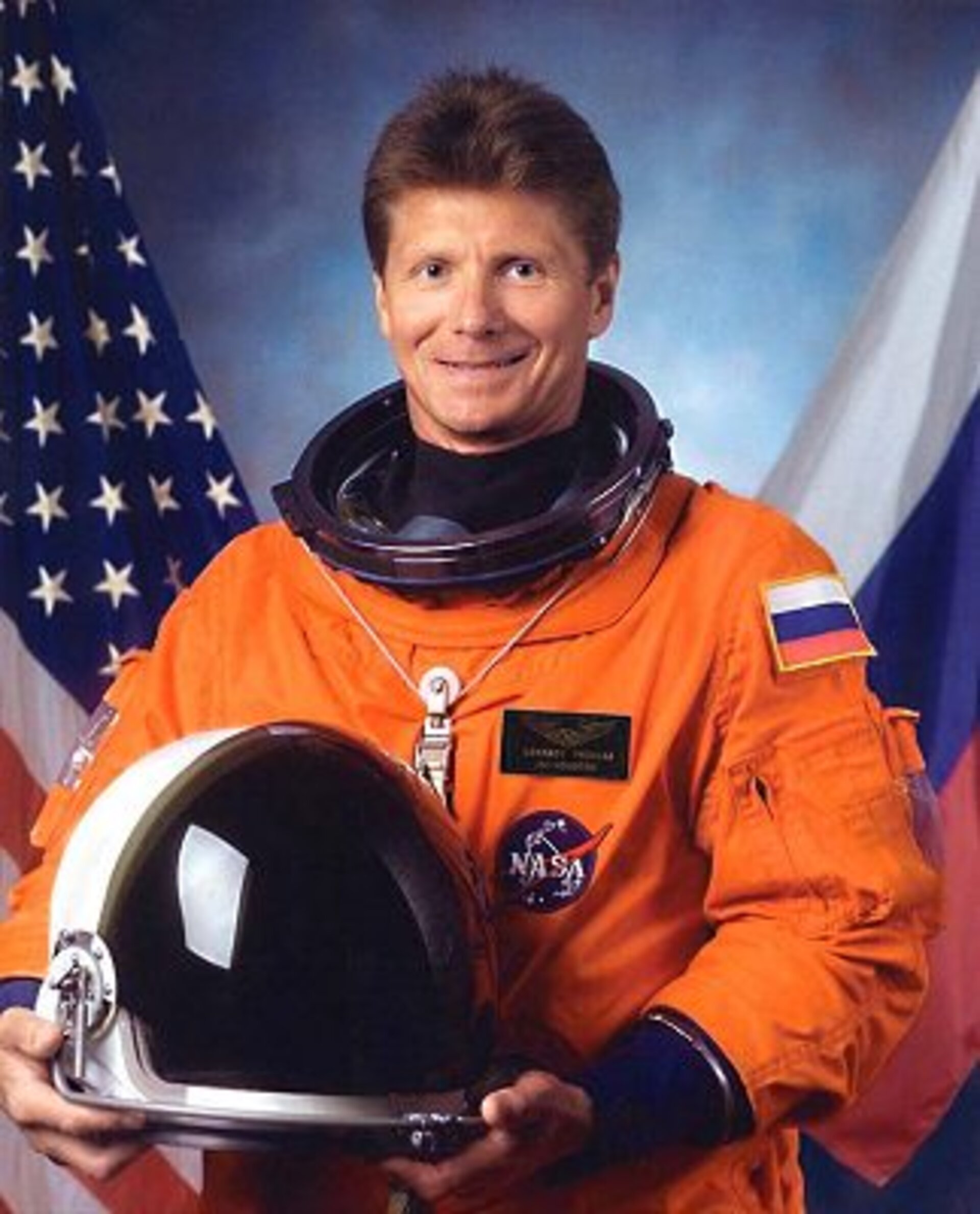Gennadi Ivanovich Padalka
Colonel, Russian Air Force
Test-Cosmonaut of Yu.A. Gagarin Cosmonaut Training Centre
Personal data:
Born 21 June 1958, in Krasnodar, Russia. Married, father of three daughters. Gennadi enjoys the theatre, parachute sport and diving.
Education:
Graduated from Eisk Military Aviation College in 1979; in 1994 he left UNESCO International Centre of Instruction Systems, where he was an engineer–ecologist.
Special honours:
Awarded the Star of Russian Federation Hero, and the title of Russian Federation Test-Cosmonaut.
Experience:
After graduation from the Military College in 1979, Gennadi Padalka served as a pilot and a senior pilot in the Air Force.
He started training as a cosmonaut candidate at the Gagarin Cosmonaut Training Centre in 1989. In 1991 Padalka qualified as a test-cosmonaut.
Gennadi Padalka is a First Class Pilot, has flown 6 types of aircraft, and has logged 1500 hours. He is an Instructor of General Parachute Training, and has performed more than 300 parachute jumps.
From 28 August 1996 to 30 July 1997, he trained as Commander of the back up crew for the Mir 24/NASA-5, 6 Russian-American programme of the 24th primary Expedition. He also trained as reserve for the Pegasus Russian–French programme and Euro-Mir programme.
From October 1997 to August 1998 Padalka trained for a Soyuz-TM/Mir orbital complex mission (Expedition 26 Programme).
June 1999 through July 2000, Padalka trained on the “Soyuz-TM” transport vehicle as an ISS contingency crew Commander.
August 2000 to November 2001, Gennadi Padalka trained as the ISS Expedition 4 back-up crew Commander.
Spaceflight experience:
From 13 August 1998 to 28 February 1999, he served on the Mir orbital complex as the Expedition 26 crew Commander, and logged 198 days in space.
Current assignment:
Padalka is assigned as Commander of the ISS Expedition 9 crew, which is due to fly to ISS on Soyuz flight 8S in April 2004.
(Source: NASA)


